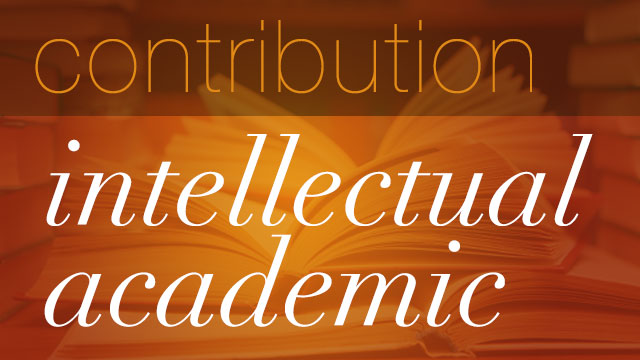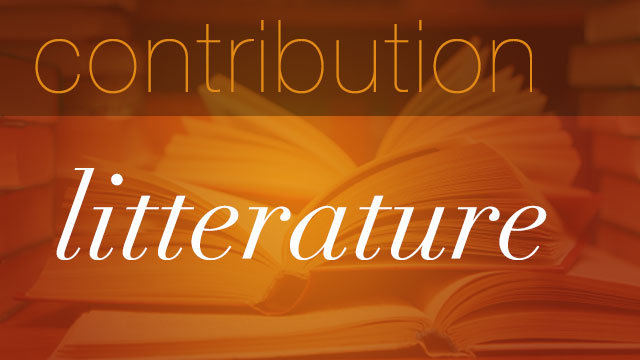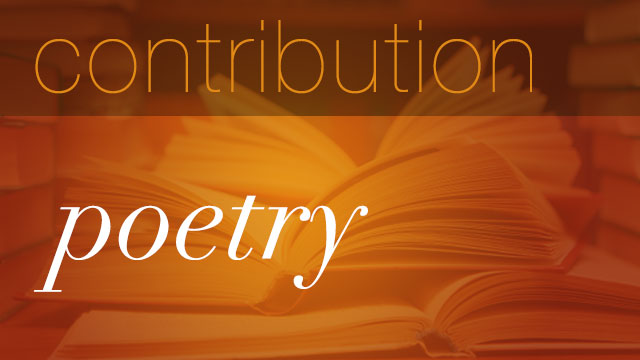“All opinions are that of the author and not necessarily those of the website that it is published under.”
Living within the paradoxically complex nostrums of identities; I sometimes fail to relate my “identity” within the larger canvas of Islamic/Muslim tradition. Outpouring the not-so-visible verbal alienation of the new Muslim generation—who consciously or unconsciously have failed—or are continuously failing to relate themselves with something called Islam and Islamic. Paradoxically, this discernibly visible dissent and absence of Islam in public discourse is actually a deep-rooted crisis of our Identity. Looking through the premise of this indubitable crisis, one gets encountered with questions like—Is it a crisis of “representing Islam” or “crisis within Islam itself” and if both are acquitted from the blame of its failure then the question arises—Why do we see such a radical shift within the new generation in Muslim societies whose history was brimming with a confident manifestation of Islamic identity in public discourse until the late eighteen century? Is it a manifestation of a clandestine ideological war of our colonizer—import of dominant western model of life which stands diametrically opposite to the essence of Islam? or we might have found a new tranquilizer to satiate our thirst, a cheesy—glamorous Opium—God Delusion—Nihilistic Material “subjectivity” or maybe a “refined minimalist Islam” which liberated each one of us from the Episteme which was quintessentially metaphysical or meta-rational in nature. Or it might be the gift of a colonial “civilizing mission” which dismantled the already fractured identity in Muslim societies and ended up creating an “artificial identity” shifting from a “sacred visibility” to “profane manifestation” of identity in every sphere of our life. Heidegger believes that this culture of “unthinking” with respect to our Being has become a universal phenomenon especially in this man-centered age of ours and continues to argue in his magnum opus Being and Time that Western thinking has lost the essence of Being. Finding ourselves as “always already” moving within western ontological presuppositions, we lose touch with our grasp of “Being” and the truth manifested becomes “muddled”.
What Muhammad Qutb (one among the polymaths of Muslim world) argues in his book “Mafaheem an yambagi an tasahuh” that a revised and refined version of Islam—“Minimalist Islam”—based on a rudimentary theoretical premise devoid of any serious understanding of its onto-epistemological underpinnings and manifestation is the reason for the disengagement of Islamic identity within the Muslim world. The predicament of identity and dissolving in others shadow is becoming an increasingly predominant quandary of our modern times. Intrinsically, the idea of identity is trans-substantially rooted in an ideology—worldview which manifests itself into a particularistic epistemology of thinking and action. Identity actually manifests and establishes your leanings towards a specific ideology. What we see as the biggest accomplishment of religion was to help us to identify the reason of our existence which intrinsically substantiate into a conscious submission to the will of God. Submission is not a usual utterance of believing in a worldview.
Evidently it is not sufficient to simply declare oneself Muslim and to go through the motions as it were, any more than it is sufficient to say, “I am a Human” and, by the mere utterance, be fully human. As Plato argued, to be human required you to exercise reason; to choose not to do this means you are human in name only. Being Muslim is in some says very simple, but many Muslims/scholars like Imam Ghazali would reason that simplicity is not enough. This is also a deeply moral question. What constitutes a good Muslim? How can we be better people? Again, if we look through the prism of Ghazallian discourse, to be fully human is to have knowledge of the greatest form of all, the form of the Good, and to know what is Good is to “be” Good. Similarly, to know the will of God and to submit to the will of God by acting on the will of God is what constitutes a good Muslim. The complication arises in, first, knowing the will of God is and second, how submission is to be understood. If submission is something different from the belief, then it is not enough to merely submit; there is much more than this verbal submission?
Samuel Huntington explores in one his book leadership crisis in the Muslim word under the sub-head “Islam: Consciousness without cohesion”. He states that the “absence of an Islamic consciousness is a major contributor to the pervasive internal and external conflicts within Muslim societies”. He goes on to say that “Consciousness without cohesion is a source of weakness to Islam”. Identity is a matter of belief and a conscious engagement with—Who you are—What is your place in the Universe—How are you supposed to respond to the responsibilities of your identity and existence—being created on the pattern of God—blowing His divine breathe (Ruuh-Spirit) into the essence of your existence. What we tend to forget is that There is only One of You and no one can be You and You can be none but You. Allah made only one like of “you” which shows your phenomenal position” in the creation. A good illustration of the meaning of crisis as “a turning point or as a decisive or crucial time and stage in the course of anything” was provided by Fritjof Capra, a quantum physicist who authored the best seller, The Tao of Physics, in his sequel The Turning Point: Science, Society, and the Rising Culture. Capra studied in detail the crisis of modern civilisation, which he described as “a crisis of intellectual, moral, and spiritual dimensions; a crisis of a scale and urgency unprecedented in recorded human history.” To Capra, this crisis of modern civilisation is essentially “a crisis of ideas” and “a crisis of identities.” It results from the fact that we are trying to shift from a “sacred” creation into a “material” (in Quranic dictum—urgent luxurious fanatics) Gods vis-à-vis a believer in Humanism—Masters of our Desires.
What changed with time is the “change in subjectivity and identity” with respect to the existence of our Being. If we take a critical distance from our usual engagements with life—it helps us to realize that something is missing—“I” am missing—it is the same “I” who is supposed to have a conscious engagement and presence with the creator as well as the creation. But the project of modernity divorced “the sacred” from the intellect and changed this “I” from an “engaging sacred creative sociable creation” to an “absent mute-taciturn desacralized subject”. I don’t want to be what I am because this “I” now nourishes under the “new consciousness” which like an uninformed malware enters into the hard-drive of your computer. If the anti-virus is missing—I—starts to get manipulated and start compromising unconsciously with the timely hazards of this virus but then this virus consciously ends up corrupting the whole operating system.
There is a serious paradigm shift on the narrative of “identities” in post-colonial Muslim world which has dismantled/corrupted the conscious adherence to an “Islamic identity”. The post 1990 born young Muslim generation of Kashmir are no exception to this F-16 speedy migration and dissemination of new cultural influxes to this ideologically under-globalized but intrinsically supra—global society acquiescing the evil chasms of modernity.
Experiencing this visible paradigm shift especially in the most clear manifested hub of understanding the influxes i.e. Kashmir University and deep rooted discussions with scholars from different fields within and outside the campus gave me an opportunity to understand and analyze this transition from essentialist theocentric consciousness to a multidimensional irreligious chasm nourished under the influence of a new ideology—liberation and progressive interpretation of theology which outlawed and delegitimizing the quintessence of any grand narrative which would act as a lynchpin to define the reason of your existence.
While they saved themselves to some extent from this ideological “Armageddon” by which I mean conscious Muslims and specifically Ulama—intellectual class but they failed to critically engage with the issues modernity brought in its basket. The champions/masters of Islam (ulama and progressive intellectual class) continue to remain obsessed in defining the outward intricacies of being a Muslim while the “Ends” (marifah of God) turns out be a distant reality for the natives. The responsible representatives of religion are so much immersed in the over-exhaustive parochial cynical intra-faith discussions (mabahith bayn al mazahib al Islam) that they forget their brethren have completely divorced and distanced themselves from any positive engagement with religion. Undoubtedly, the saying of Hazrat Ali (r.a) acts as a lynchpin for dawah methodology when he says “tukalimun naasu ala qadri ukulihim” means to engage with the language (ideology) of the time. Don’t we need to divert our energies out from intra-faith polemical rhetoric to address this growing dissent emerging within the younger Muslim generation against Islam? Religion continues to be the most weak and absent narratives in public discourse which if not addressed will create a huge vacuum and open doors to other narratives which interchange this deep rooted thirst for religion from other “isms”.
The ideologically backed and socially experimented ideas of irreligiousness, free-thinking and liberal narratives are gained ground and creating dualistic identities in societies which are quintessentially religious in nature. A very greats scholar of Kashmir once said Islam in Kashmir is facing two serious problems—one is distancing of young people away from religion and second is the appraisal radicalized version and interpretation which is detrimental to the essence of Islam but the third and fourth threat seems to be missing which is a growing minimalist liberal approach to religion and the corruption of ingrained sacredness in the “fitrah based subjectivity” of human beings. All four strands remain equally responsible to the extinction of religion from the public sphere and its manifestation is quite visible in our social, religious and cultural settings.
Slavoj Zizek argues that there is no alternate narrative to the world than late-capitalism and Richard Dawkins believes science to be the only source of revealing the reasons and questions of human existence but both these narratives have helped humanity only in turning from sacred creation to werewolves of cynical nihilism. What we are supposed to redefine and permeate is the narrativization of identity inspired from a sacred text which is trans-historical and metaphysical in nature i.e. revelation which is the only possible narrative for reclaiming our lost Self in the most confusing times of human history. Heidegger would call it a man-centred subjectivism—crisis in thinking of what is to be thought actually “unthinking” and to what Imam Ghazali would call in his masterpiece al-Mustasfa crisis of hoax intellectual adventurism admixtured with unconscious corruption of Soul.
An Appeal
Plato argued that thought is the most important constituent of human existence and if the concept of thought is missing the whole idea of existence collapses. The contemporary age is surreptitiously the age having nihilistic underpinnings disdaining the role of religion. The intellectual task for the Muslim Ummah is to identify the phenomenological reasons for the absence of Islamic identity in the “Being” and infer the possible answers by invoking the sacred texts. Phenomenology, in Husserl’s conception, is primarily concerned with the systematic reflection on and study of the structures of consciousness and the phenomena that appear in acts of consciousness. Reforming Nafs (Being) is the lynchpin of Quranic discourse which tries to address the crisis from the metaphysical point of view. As a solution to this condition, Heidegger advocated a change in focus from ontologies based on ontic determinants to the fundamental ontological elucidation of being-in-the-world in general, allowing it to reveal, or “unconceal” itself as concealment. What we are possibly supposed to spend our intellectual energies is to address this crisis of reconnecting this corrupted “Being” to the onto-theological threshold. The nihilism ingrained in the western ontological pretext is quite visible in the epistemological interpretation of human life in western context which stands diametrically opposite to the idea of existence in the Islamic worldview. The quintessence of ontology in Islamic worldview is meant to clarify the meaning of Being. Looking through the prism of Islam, Ontology (study of reality) can be clearly differentiated from the Cartesian method of analysis which sees the world as objects, sets of objects, and objects acting and reacting upon one another.
Liberating the idea of existence by de-ontologizing it from Cometian positivist interpretation will tread the path for Islamic onto-epistemological premise for giving sacred meaning to the essence of human existence. While Islam is a process of liberation—liberating you from the time-bound Epistemes in Foucaldian context and allows you to experience what was experienced by every conscious being who engaged with the revelation i.e. a belief in a trans-historical meta-narrative which has traversed all the intellectual challenges of history but seems to be struggling with the “new language” emerged out of secular humanistic Cartesian rationalism. What Muslim intelligentsia seems to be work on is to develop a “new language” inspired from its onto-epistemological pretext to answer the challenges of identity and subjectivity.
“All opinions are that of the author and not necessarily those of the website that it is published under.”






Hello, i read your islamic post.It is very helpful.There are many bangladeshi islamic site.If you want , you can read ii.